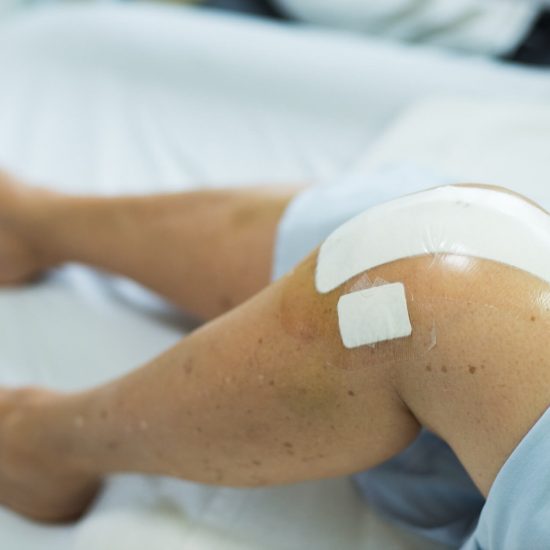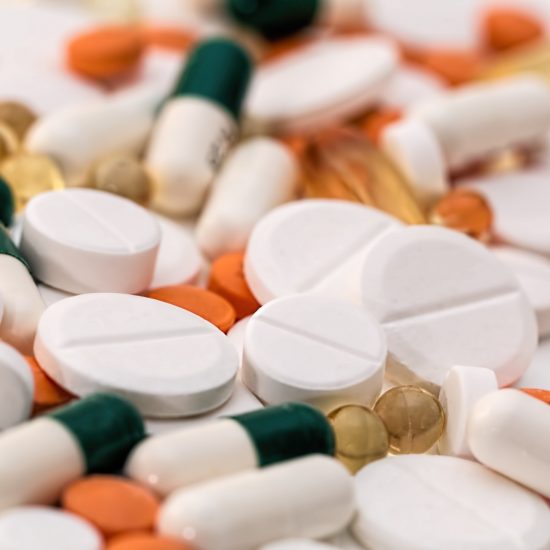
5 Immunosuppressant Side Effects to Consider During COVID-19
Protecting your health has never been so important. The COVID-19 pandemic has changed our priorities—especially when it comes to protecting our health. But did you know that certain medications can actually suppress your immune system? If you or someone you care for are taking one of these so-called “immunosuppressant” medications, you should know about the possible side effects.
Some side effects can resemble symptoms of COVID-19, so consider your symptoms and severity. Remember you can always contact your doctor if you have questions or concerns.
Read below for 5 important immunosuppressant side effects so that you can protect yourself and your loved ones.
A Few Things to Know
Immunosuppressant drugs are a group of drugs that purposefully weaken your immune system. This can make it more difficult for your body to fight infection.
This type of drug is often used for transplant patients. Immunosuppressants reduce the likelihood that the body will reject the transplanted organ. This is why immunosuppressants are sometimes called anti-rejection medications.
Immunosuppressants are also used to treat autoimmune disorders like Rheumatoid Arthritis, Lupus, and Inflammatory Bowel Disease (IBD). Autoimmune disorders occur when the immune system attacks itself. So, by weakening the immune system, the body doesn’t have the same negative effects from the attack.
Whatever immunosuppressant medications you may be taking, it is important to stay compliant with all prescribed medications. This is true even during COVID-19. Check with your doctor if you have questions about your medication routine.
But there are a few other things to consider when trying to support your health during this time.
1. Risk of Infection
The number one concern of patients taking immunosuppressants is the risk of infection. The purpose of these drugs is to reduce the immune system activity, so it’s expected that the immune system is compromised.
There is research being conducted about whether people taking immunosuppressant drugs are at a higher risk of COVID-19. But, preliminary studies have shown that those taking immunosuppressants are not at an increased risk of contracting or spreading the virus.
However, those that consider themselves high-risk should still be cautious. A compromised immune system could affect how severe symptoms are and how long it takes to recover.
Without sufficient research and evidence, everyone, including those on immunosuppressants, should be careful. This includes social distancing, hand washing, and wearing a face covering when in public.
Even though risk of infection is one of the side effects of immunosuppressant drugs, it is recommended that healthy individuals stay on their regular medication routine. You can even order your medications online to reduce any potential exposure when traveling to the pharmacy.
If you have more questions about your risk of infection, contact your doctor or another medical professional.
2. Nausea and Vomiting
Nausea and vomiting are less common symptoms of COVID-19. But they are very common among those taking immunosuppressants. For individuals that experience these side effects, it could be concerning.
If you experience nausea or vomiting, talk to your doctor and consider whether you may have been exposed to someone that has recently tested positive for COVID-19.
If you are taking immunosuppressants for a transplant you should also be watching out for rejection symptoms. Some of those symptoms can be flu-like which could resemble COVID-19 symptoms. Contact your doctor immediately if you start to experience those symptoms.
3. Inflammation Symptoms
If you are taking an immunosuppressant drug for an inflammatory illness it is still possible to experience flare-ups. Inflammatory illnesses involve swelling inside or outside of the body. Some of these conditions are treated with anti-inflammatory drugs and some require immunosuppressants.
During the global pandemic, it’s normal to be aware of how you are feeling at all times. However, every ache and pain does not necessarily mean you have COVID-19.
For example, if you are taking an immunosuppressant for Rheumatoid arthritis and have a flare-up you could experience pain, fatigue, or flu-like symptoms. Generally, they will subside within a day or so. If symptoms last longer, you should contact your doctor for advice.
4. Cardiovascular Disease
Cardiovascular disease is a potential long term side effect of immunosuppressant drugs. People with autoimmune disorders taking immunosuppressants have an increased risk of morbidity and mortality due to cardiovascular disease.
Respiratory symptoms of COVID-19 include coughing and shortness of breath. These can also be symptoms of cardiovascular disease. Distinguishing between the two can be difficult.
Consult a doctor if you start to experience any respiratory issues. It could be a normal side effect of your immunosuppressant but it could be a symptom of COVID-19.
Individuals taking immunosuppressants should also avoid smoking and try to keep a healthy weight and blood pressure. Taking care of oneself can reduce the risk of cardiovascular complications from immunosuppressants.
5. Drug Interaction Side Effects
If you contract COVID-19 and are prescribed medication, it may react with the current immunosuppressant drugs you are taking. You should consult a medical professional to learn about any potential negative drug interactions.
Skin rash, diarrhea, abdominal pain, high cholesterol, and upper respiratory tract infections are potential signs of a drug reaction.
Your doctor may choose to alter your medication routine while you are recovering from COVID-19. However, if you are recovering from a transplant, your immunosuppressants may be the priority.
Immunosuppressant Side Effects and COVID-19
If you take an immunosuppressant drug, talk to your doctor about any potential changes to your medication routine because of COVID-19. Generally speaking, it is safe to keep taking your medication even during the pandemic.
Some immunosuppressant side effects are the same as symptoms of COVID-19. So check with your doctor if you start to experience any flu-like symptoms including fever or respiratory problems.
Take caution when in public by keeping your distance and wearing a face covering at all times. Wash your hands and avoid crowds especially indoors. Keep yourself healthy and safe during this challenging time.
Looking for a way to get all your medication on time without getting on the phone or leaving your home? Check out what our online pharmacy has to offer!





